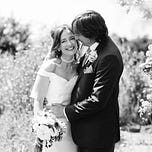“I used to knock on the door of No. 10 Downing Street. Now I'm sitting on my bed, in tears, in my pyjamas, trying to figure out how to fix my head, and really stressed about how to fix my head, and really quickly, because I have a mortgage to pay and a job to do.”
I was in my late 30s, at the height of my journalism career, working as a political reporter for the global news agency, Reuters, with a desk in the Houses of Parliament and a seat on the prime minister’s plane.
Then it all came crashing down.
On the outside, I looked good - competent, confident, professional, ‘successful’.
On the inside, I was falling apart.
Only I couldn’t fall apart.
I couldn’t even slow down, because I was a single, childless, 30-something woman with no family support, no financial safety net and with a huge mortgage to pay.
I was also, I now understand, a psychologically complex woman suffering from developmental trauma - a woman who relied on a range of survival tools she’d acquired in childhood to get by, including compulsive busyness, over-working, over-achieving, over-doing, over-eating, excessive drinking, people-pleasing and generally avoiding her feelings by any means necessary because she was too afraid to feel her pain.
But I did fall apart, because I had no choice in that either.
I was signed off work by my doctor and I swapped my sharp suits and knee-high boots for baggy pyjamas and boxes of tissues.
As I said in my recent radio interview with BBC Radio Solent (read the transcript by clicking ‘Transcript’ at the top of the page), we can only push ourselves so far:
“We think we are really robust and resilient, and we are robust and resilient, but there's only so much our bodies and our minds can take. Unless we put the breaks on, we are going to hit the wall.”
So much has changed since my burnout.
It’s about 17 years on (I’m now 54) and my life looks very different.
I left the corridors of power in search of a slower pace of life.
I swapped my London flat for a home with a garden on the Dorset coast.
I learned to love myself, take care of myself, overcome my eating disorder and heal my early life wounds and because of that, I created space in my life to understand and undo my dysfunctional relationship behaviours and to find, form and keep a healthy relationship with an emotionally available man.
I married Bill at 48.
Today, 29th June, is our wedding anniversary.
In this new chapter of my life, I also wrote a book, ‘How to Fall in Love’, because I wanted to support others to transform their relationships, starting with their relationship with themselves, and I built a coaching practice, hosted women’s retreats and began to share my healing journey with anyone who was ready to hear my message.
My life is very different today and yet, as I continue to run my own business and navigate the ups and downs of peri-menopause/menopause (I’m somewhere in between), I have to remember to walk the walk, to practice what I preach.
To prioritise self-care over serving others.
To prioritise healthy nutrition, exercise, human connection, rest and sleep over my aspirations to touch more lives with my work, to publish my novel and to fulfil by other career dreams.
To remember that my health - mental, emotional and physical - has to come first, before my work, before helping others, because without that, what is left?
“You might be able to juggle a million balls, but at what cost to yourself, to your mental health, to your wellbeing, to your physical health?”
Yes, dear Reader, remember to ask yourself, ‘At what cost?’ before you say ‘Yes’.
I’ll end with my final words from the radio interview - a message to anyone who is struggling, spinning too many plates, trying to hold it all together, looking good on the outside while crumbling on the inside, afraid to slow down and feel their pain:
“Tell the truth. That starts with telling yourself the truth. Then find someone you trust and tell them the truth. Be honest, vulnerable and ask for help, and every day implement a tiny wellbeing strategy.”
Are you telling yourself the truth about how you feel?
Are you spinning too many plates, at a huge cost to yourself, your health and your relationships?
Are you close to hitting the wall?
If the answer is ‘Yes’, how can you slow down?
Whom can you ask for help?
Remember, you are not alone.
It is safe to slow down.
It is safe to rest.
It is safe to be vulnerable with people you trust.
It is safe to ask for help.
I send you courage to take a step today that your future self will thank you for.
From midlife with love,
Katherine x





